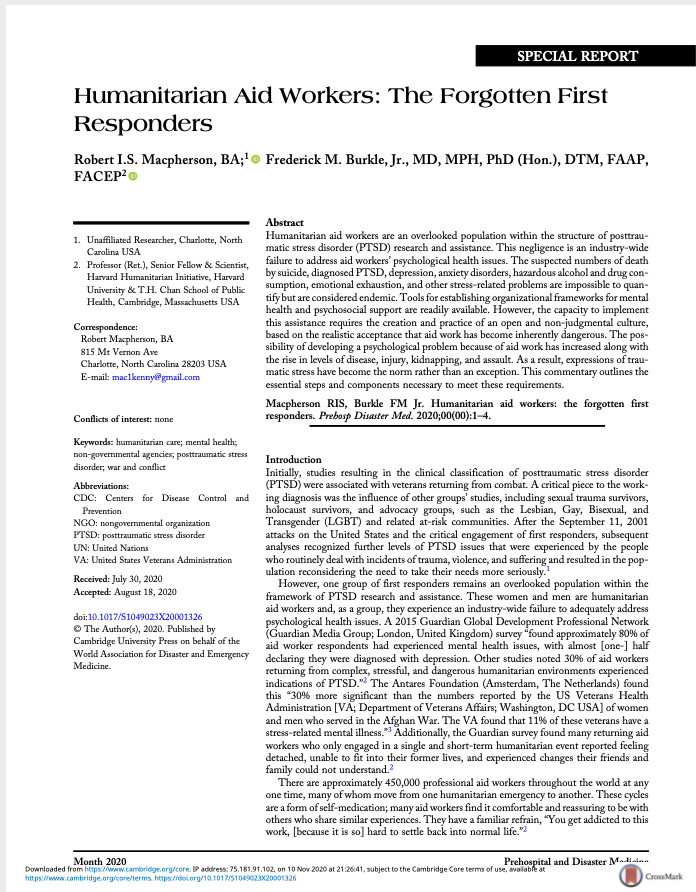Abstract:
Humanitarian aid workers are an overlooked population within the structure of post-traumatic stress disorder (PTSD) research and assistance. This negligence is an industry-wide failure to address aid workers’ psychological health issues. The suspected numbers of death by suicide, diagnosed PTSD, depression, anxiety disorders, hazardous alcohol and drug consumption, emotional exhaustion, and other stress-related problems are impossible to quantify but are considered endemic.
Tools for establishing organisational frameworks for mental health and psychosocial support are readily available. However, the capacity to implement this assistance requires the creation and practice of an open and non-judgmental culture, based on the realistic acceptance that aid work has become inherently dangerous.
The possibility of developing a psychological problem because of aid work has increased along with the rise in levels of disease, injury, kidnapping, and assault. As a result, expressions of traumatic stress have become the norm rather than an exception.
This commentary outlines the essential steps and components necessary to meet these requirements.
This report was published by Cambridge University Press, to view more of their resources, visit their website.
